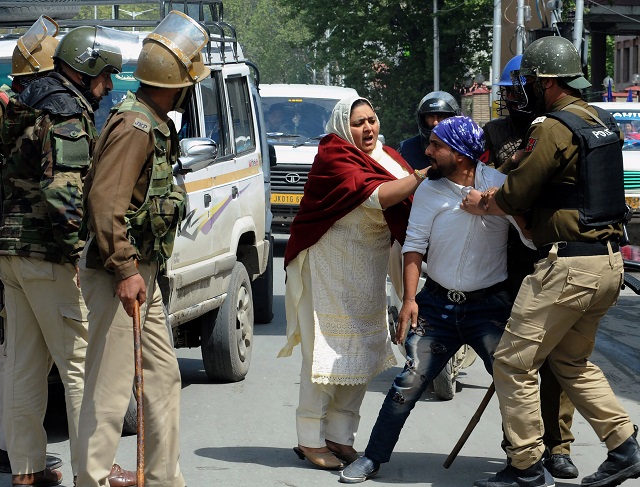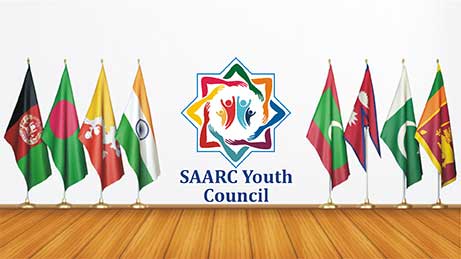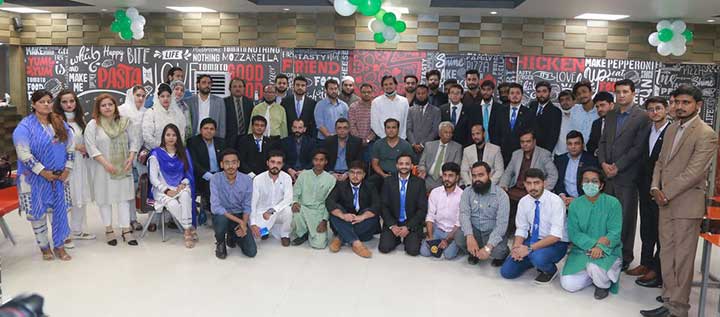DHAKA: A UK based human rights organization ARTICLE 19, expressed deep concern over the persistent deterioration of India’s secular democracy nature and freedom of expression at the advent the country going to celebrate its 74th Independence Day on 15th August this year. India ranked 142 out of 180 countries – falling two places from 2019 – in Reporters Without Borders’ (RSF) 2020 World Press Freedom Index. With others a foremost reason for India’s low press freedom index has been the government’s shutdown of the internet in the Jammu and Kashmir after rescinding its semi-autonomy in August 2019. The International Press Institute, a journalism watchdog, recently called Kashmir one of the “world’s most repressive spots for the press.
At home and abroad, one of post independence India’s defining characteristics is that the nation has managed to sustain democratic governance in the face of striking ethnic, linguistic, and religious diversity. However, the recently-passed controversial citizens bill which grants accelerated citizenship to Hindu, Sikh, Jain or Buddhist refugees from neighboring countries, but not Muslims — threatens that history of secularism. It is a milestone in Prime Minister Narendra Modi’s campaign to reshape India into an overtly Hindu nation. In August, 2019, the Modi government revoked the special constitutional status of Jammu and Kashmir and split the province into two separate federally governed territories. Before the announcement, the government deployed additional troops to the province, shut down the internet and phones, and placed thousands of people in preventive detention. The government failed to properly enforce Supreme Court directives to prevent and investigate mob attacks, often led by ruling Bharatiya Janata Party (BJP) supporters, on religious minorities and other vulnerable communities.
In a statement issued to the media today, Faruq Faisel, Regional Director of ARTICLE 19 South Asia, an UK-based International Human Rights Organization said, “India’s secular structure faces a profound crisis. The Citizenship (Amendment) Act, 2019 (CAA) is against the letter and spirit of the Constitution of India. Articles 5 to 11 of the Indian Constitution guarantee the premise of common citizenship regardless of differences of caste, creed, gender, ethnicity and culture. Further, Article 14 of the Constitution lays down that the “State shall not deny to any person’s equality before the law or the equal protection of the laws within the territory of India. It bears emphasis that Article 14 applies not only to citizens but to ‘all persons within the territory of India’.”
“Violence against journalists has been on the rise, with nationalist Hindutva supporters harassing and also beating up journalists when they are reporting or covering on the protests happening in India in the past years. Any form of dissent in India is being considered anti-national. The assault on the Rule of Law in India, religious minorities, and on its citizens’ rights to free speech, dissent, and fundamental freedoms hit the India’s secular image, democracy and freedom of expression rights”, he added.
India ranks 13th among countries where journalists are murdered and with no repercussions to bring the guilty under the law, according to the Committee to Protect Journalists’ 2019 Global Impunity Index. It has been on the index for the last 12 years. Additionally, India had the third highest cases of intimidation against female reporters. Amid a nationwide lockdown since March 24 2020, to curb the spread of coronavirus, journalists across India are being charged with sedition and summoned to police stations for reporting on the government’s handling of the pandemic. The controversial CAA and the NRC (National Registrar of Citizens) which threaten to put millions of religious minorities in India having to prove their citizenship or become stateless, in a country where many are not literate enough. The nationwide peaceful protests as a result of CAA and NRC saw violence and use of excessive force by the authorities against protestors, most of them who were students and women. Particularly the peaceful protests in Jamia Millia Islamia University which were subject to an excessive beating, sexual harassment, and killing of at least 53 people and injuring hundreds. The complicity of the authorities and police in some instances of violence, mostly in Muslim neighbourhoods is disappointing to say the least, especially in a country that takes pride in its secularism and has the largest Muslim population in the region.
Safoora Zargar, an Indian scholar who participated in CAA and NRC protests in Delhi, was arrested while pregnant, kept in a COVID-19 positive crowded jail facility for months, and repeatedly denied bail. After months of request by Human Rights Groups, Zargar has now been released on bail. However, such acts show the complicity and illegitimate use of the law by the authorities, when the right to protest and right to expression is protected by India’s constitution.
Indian authorities continue to impose harsh and discriminatory restrictions on Muslim-majority areas in Jammu and Kashmir, one year after the revocation of Article 370 and 35A of the Indian constitution that provided the region some autonomy. Since then there has been a massive militarization of the two areas with complete communication shutdowns. With landlines, broadband, mobile phones, roadblocks, and suspension of transport services, the people of Jammu and Kashmir are completely cut off from the rest of the world. On top of the continuing restrictive communications, intimidations, and harassments to stifle the journalists, the Indian government has now implemented a New Media Policy 2020 for Jammu and Kashmir, which further increases the Indian government’s control over journalists and press in the region.
Faruq Faisel said, “Democracy thrive through care and guidance of public opinion and press par excellence. Freedom of Speech and of Press lay at the foundation of all democratic organizations, for without free political discussion, no public education, so essential for the proper functioning of the process of Government, is possible. The government has duty to uphold the freedom of press and invalidate all laws and administrative actions that abridge that freedom”.
ARTICLE 19 calls the Indian government and authorities to take effective measures to uphold secularism, rule of law and freedom of expression in the country. The government needs to investigate violations and that those responsible are brought to justice.








